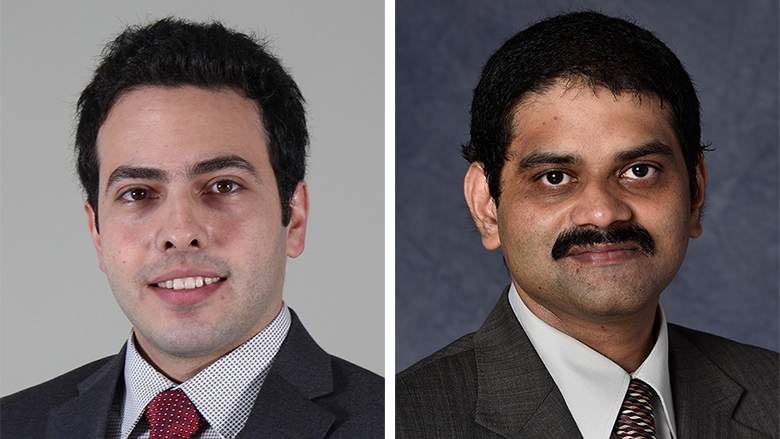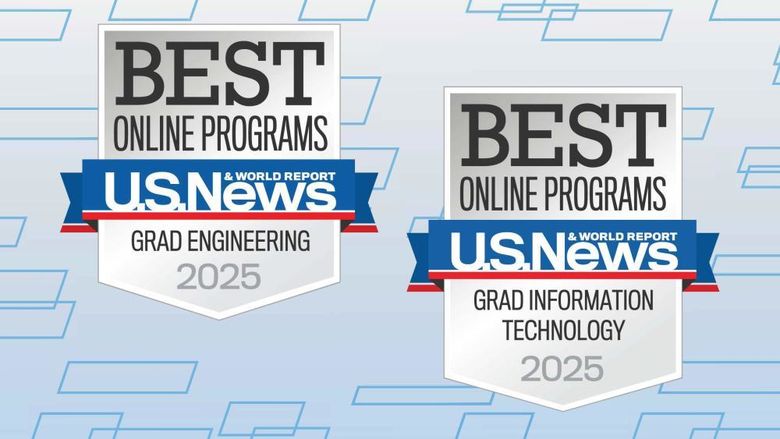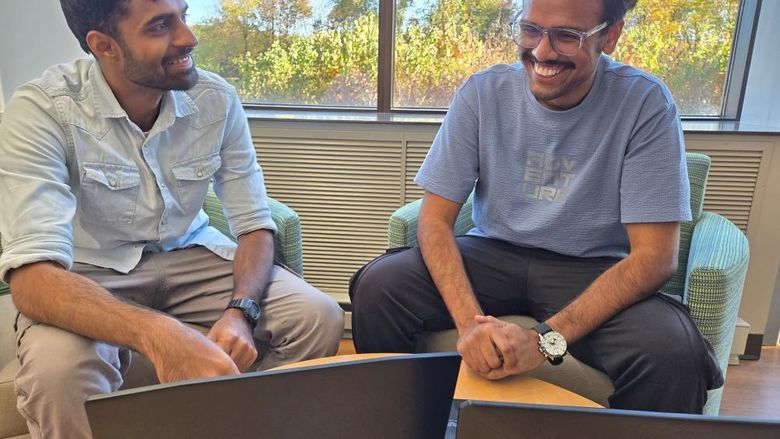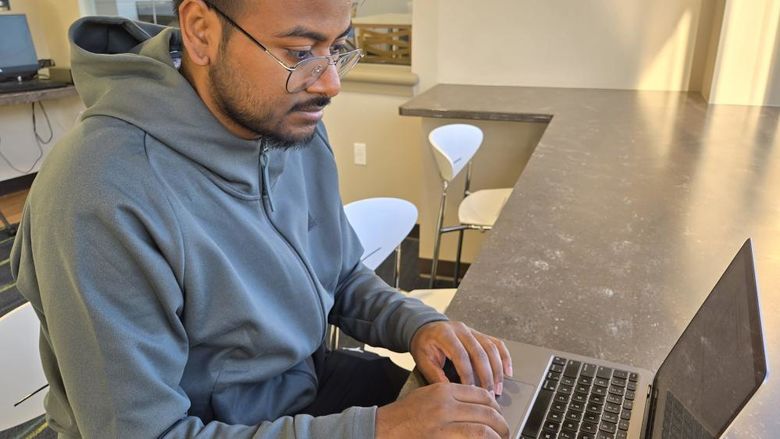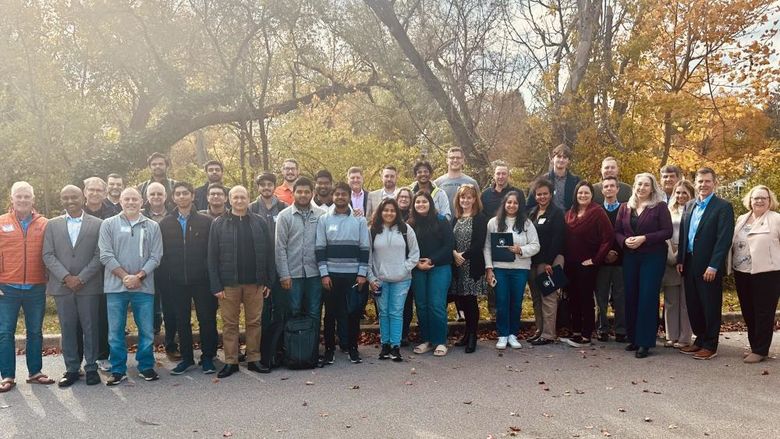From left to right: Mohamad Darayi, Devendra Jaiswal, Scott Clayman and Ashkan Negahban. Jaiswal and Clayman worked with Darayi researching Pennsylvania’s freight transportation infrastructure resilience.
MALVERN, Pa. — Penn State Great Valley graduate students Scott Clayman and Devendra Jaiswal recently had an opportunity not many master’s students have: presenting their research at a national conference.
The two data analytics students traveled to Seattle to share their research at the annual meeting for the Institute for Operations Research and the Management Sciences (INFORMS), which is the world’s largest professional society for scholars in the fields of operations research, management science, and analytics.
Most attendees at the annual INFORMS conference are doctoral students, doctoral candidates and faculty, so presentations from master’s students are rare; in fact, Clayman and Jaiswal don’t recall meeting any other master’s students at the conference.
“As long as you have confidence in your work, you feel like whatever you did was awesome,” Jaiswal said. “(Presenting) is intimidating at first, but toward the end of it, things get pretty amazing.”
Clayman and Jaiswal worked with Mohamad Darayi, assistant professor of systems engineering, on his research on Pennsylvania’s freight transportation infrastructure resilience and related economic impacts. Clayman studied the losses caused by disruptions to various infrastructure networks, while Jaiswal investigated cost-effective ways to fix those networks.
“It was a good opportunity to be able to work with economic data because I had a business economics undergrad background,” Clayman said. “The way that professors are specialized in certain fields is really helpful to be able to connect with someone who’s related to your background.”
When Clayman and Jaiswal started working with Darayi, the focus was on familiarizing them with the research. Then, using techniques they learned in their classes, Clayman and Jaiswal began to look at the data more in-depth.
“Having weekly meetings with Dr. Darayi and having regular feedback after we’d done additional work was really helpful to getting our research to where we want it to be,” Clayman said.
At this year’s conference, Darayi, who has been involved with INFORMS since 2013, chaired a session on freight transportation resilience and economic impacts; one of his collaborators chaired a session on resilient infrastructure and community networks. Given the in-depth research Clayman and Jaiswal had done, the sessions were perfect fits.
Thanks to a seed grant Darayi received from Penn State’s Center for Security Research and Education, Clayman and Jaiswal’s work on the research and travel accommodations for INFORMS were financially supported.
“Working on independent research is something which is out of the box,” Jaiswal said. “There’s a problem which is not related to your course. You can’t get credit for it, but you still work for it because the problem appeals to you. You apply everything you’ve learned in class.”
Clayman and Jaiswal had presented their research elsewhere, including at Penn State Great Valley’s annual student poster competition. The pair won first place, and the experience was particularly helpful for presenting at INFORMS.
After the initial nerves wore off, Clayman and Jaiswal were at ease presenting to the INFORMS audience and received positive feedback from many attendees. Darayi also had colleagues tell him they were impressed by Clayman and Jaiswal’s research.
“I think with the feedback they got, they could say, ‘Yeah, we’re doing something serious,’” Darayi said. “My Ph.D. adviser was in both sessions. I had lunch with him, and he told me, ‘Those guys did a good job. It was a good presentation.’”
